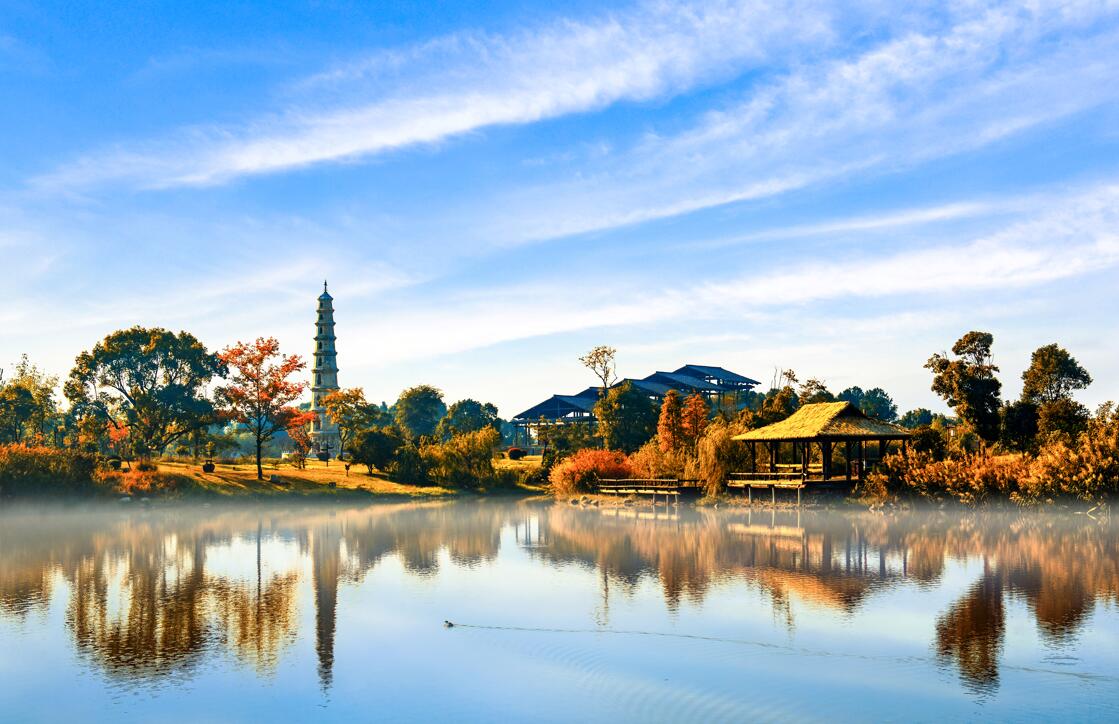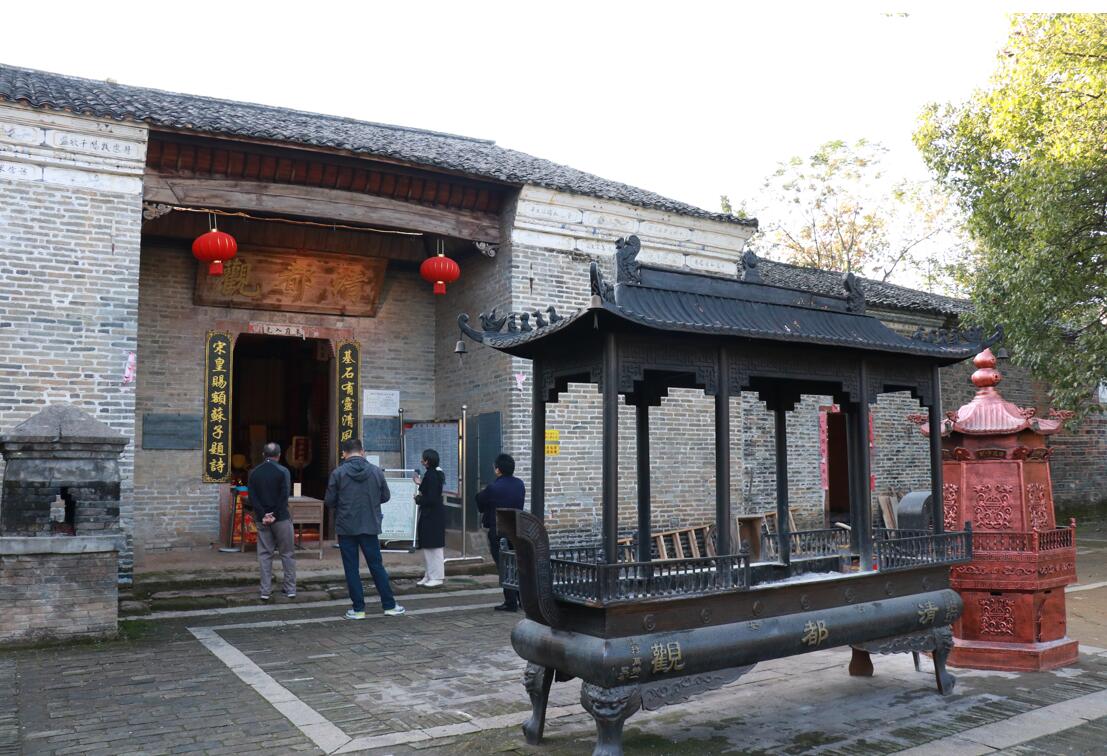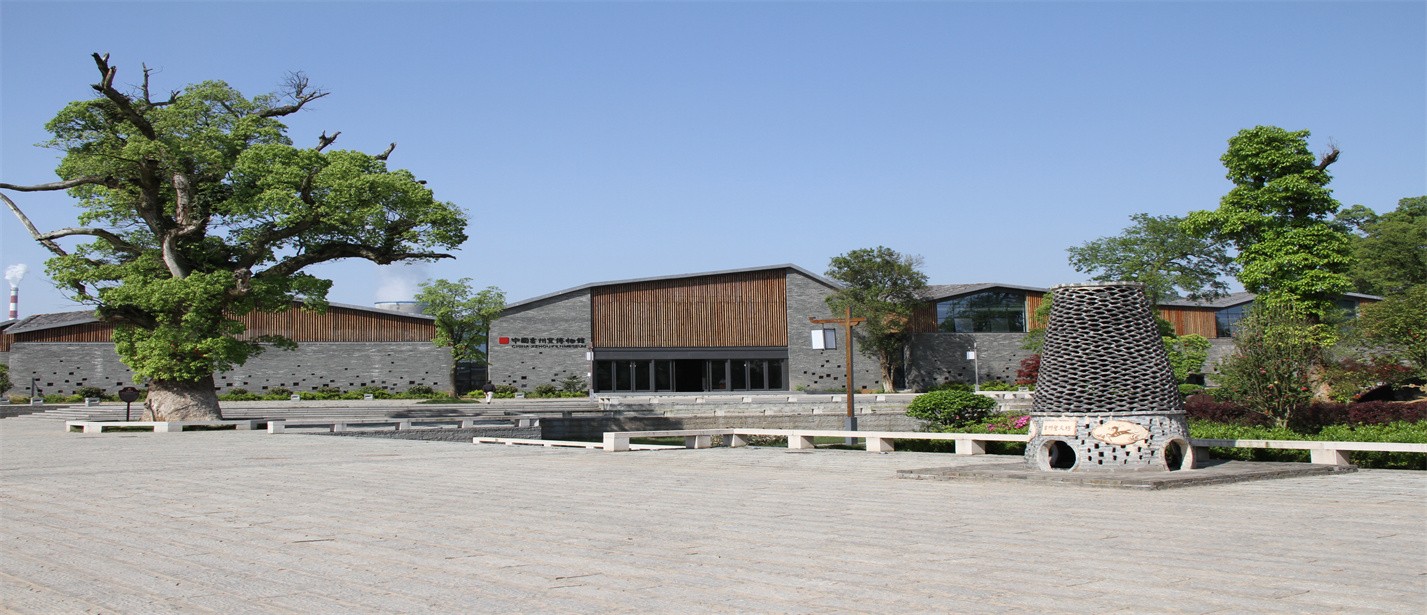The Jizhou kiln has a profound cultural heritage. With the establishment of the Luling Commandery, Yonghe Town in the Song Dynasty has a history of 1800 years. By the peak of Jizhou Kiln (during the Qiandao period of the Southern Song Dynasty), it had a history of 900 years. Since at least the Tang Dynasty, the culture of Yonghe Town has been very developed, giving rise to a large number of influential politicians and writers in Chinese history. Ouyang Xiu's ancestral home is in Yonghe, and he, along with Ouyang Fei, the son of Ouyang Xiu, was listed in the "Yuanyou Party Records Stele". Ouyang Zhongli, a jinshi, was from Yonghe, while the famous educator Ouyang Shoudao was from Yonghe. The origin of the reputation of Luling as a "righteous country" comes from Ouyang Xun, a native of Yonghe, Zhou Bida, a prominent minister, literary figure, and printing expert of the Southern Song Dynasty, was from Yonghe. The famous poet Ouyang Ban was from Yonghe, and the first generation literary master Ouyang Xuan of the Yuan Dynasty was from Yonghe. According to statistics, there were 37 successful candidates who passed the imperial examination in Yonghe. In addition, the top scorer, national hero, and patriotic poet Wen Tianxiang also have an inexplicable bond with Yonghe: his ancestral home is Yonghe, his mentor Ouyang Shoudao is from Yonghe, and his wife Ouyang Madame (father-in-law Ouyang Hanlao, styled Pu'an) is from Yonghe. The prosperity of Yonghe Town has also attracted literary giants such as Zhao Fan, Huang Tingjian, Su Shi, Yang Wanli, Hu Quan, and Guan Yunshi to visit. As described by later generations, "Once Su Neihan's essay is passed, it will never be extinguished" and "Once Duke Po is exiled to the South China Sea, the world dare not underestimate Huizhou.". The long and brilliant cultural heritage of Yonghe provides sufficient cultural nourishment and creative inspiration for the aesthetic orientation and artistic taste of Jizhou kiln products.

The religious culture of Jizhou Kiln is prevalent. From a spatial perspective, during the Song Dynasty, Buddhism and Taoism were prevalent throughout the country, and the land of Luling was no exception. The Buddha's rain soaked the land, and the Taoist wind blew vigorously. According to statistics, there are 912 temples in Jiangxi region, 124 in Jizhou, ranking first in Jiangxi, while Luling County has 41 temples, ranking second among all counties in Jiangxi. In terms of palaces and temples, there are about 340 palaces and temples in Jiangxi, with about 2400 Taoist crowns, accounting for about 12% of the total number in the country and ranking among the top. 50 Taoist temples in Jizhou, ranking second in the Jiangxi Provincial Army; There are 12 Taoist temples in Luling County, ranking fourth among all counties in Jiangxi.

As a gathering place of Luling culture, Yonghe is also known for its strong Buddhist and Taoist traditions. According to the "Dongchang Chronicle", Yonghe within a mere two square kilometers had more than ten temples and temples, including Baoshou Temple, Zhidu Temple, Huideng Temple, Gufo Temple, Benjue Temple, Shouyue Temple, Huitong Temple, Fushun Temple, Neikuangxian Temple, and Qingdu Temple. Among them, Benjue Temple was first built in the Sui Dynasty. In front of the temple, there is a Buddhist pagoda named "Benjue Temple Pagoda", which was built during the Kaiyuan period of the Tang Dynasty and has eight sides and nine levels. There is an iconic kiln ridge in front of the tower, named "Benjue Temple Kiln". In the year 902 AD, another temple was built in Yonghe, named Huideng Temple. The Fushun Temple and Kuang Xian Temple are both commemorating local immortals with a long history and significant influence in the area. The Qingdu Temple, a thousand year old ancient temple, still exists today with countless followers and has attracted cultural giants such as Huang Tingjian and Su Dongpo. The prosperity of Yonghe Temple can also be verified by physical objects. There used to be a huge iron bell in the Qingdu Temple, with inscriptions on it: "In the second year of the Zhiyuan era, the tenth month of the third year of the Taisui era was auspicious for Japanese mountain Taoist Liu Yuxian." "Yonghe Qingdu Temple in Luling County, Ji'an Road, Jiangxi Province, the Great Yuan Dynasty... cast a Hongzhong weighing over a thousand pounds.". This indicates that by the early Yuan Dynasty, the economy of Yonghe Town had not yet declined, which suggests that the Jizhou kiln was still being fired. The Qingyuan Mountain Jingju Temple across from Yonghe is also a famous Buddhist holy land. Except for temples, almost every household at that time worshipped Bodhisattvas and immortals. Religion requires a large amount of ceramics, such as Buddha statues, shrines, incense burners, tea cups, teapots, offerings, tomb bowls, and burial objects, not only in temples but also in every family. Religion has provided cultural nourishment for the improvement of the ceramic industry in Jizhou kiln. The need for Zen has led to the production of wooden leaf Tianmu lanterns in Jizhou kiln, and Zen has also made the decorative style of Jizhou kiln tend to be simple yet profound.







